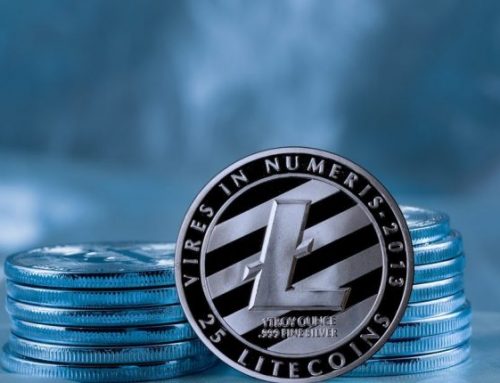Our comprehensive wallet provider test helps anyone interested in digital currencies. Who wants to buy Bitcoins, Ethereum, Litecoin or one of the many other cryptocurrencies, a prerequisite must be met that he must have an e-wallet. This is almost like a wallet that holds real currency. Our Google Wallet review shows you the types of wallets that exist, their differences and similarities, and the criteria to consider when choosing the right crypto wallet.
How wallets work
Comparison of fiat currencies to wallets is actually not as suspicious as it might seem at first glance. You should keep your personal assets and conduct payment transactions because both serve the same benefits. The difference is that a wallet is an arbitrary sequence of digital characters. Participants in the network can verify the amount in their e-wallets, usually using public databases. Even then, you cannot access the assets and cannot understand who owns them.
A Bitcoin Wallet is a practical example to illustrate how to access a wallet. For many years, Bitcoin has been the market leader in digital currencies, so our wallet provider comparison is for those interested. The owner has access to the bitcoins stored in the wallet through a public key. This should be taken with the utmost care and should not be shared with others. Because it is valid: Anyone who owns the private key automatically has access to all the bitcoins stored in the wallet. In case of loss, there is no central case that the individual can turn to. It is still difficult to prove that you own Bitcoin (not for physical gain).
In addition to storing private keys, wallets are responsible for managing public keys. The difference with a private key is that a public key is shared with other Bitcoin owners to initiate transactions. Therefore, the recipient of a Bitcoin transaction must inform the sender of their wallet address (= public key) so that the BTC can change ownership. Each wallet only belongs to one private key, but for each transaction you can generate a new public key that is exclusively assigned to this wallet. The wallet’s job is also to manage all your keys.

Convincing IQ Option in Wallet Provider Comparison
Wallet experiences: what types are there?
According to wallet reviews, there is no single best wallet that meets the needs of all users. Because every cryptocurrency owner has different criteria such as security, cost, flexibility, and other criteria, our wallet provider comparison has several manufacturers. Basically, we need to differentiate between two types of wallets: hot wallets and cold wallets.
Hot wallet ensures continuous availability
A hot wallet is a digital wallet that can be accessed over the internet at any time. Almost all crypto trading platforms represent hot wallets because they allow you to deposit and store cryptocurrencies in customer accounts at the same time. Also in our wallet comparison, there are many other providers that offer hot wallets without an integrated trading platform. However, those interested in preserving this form of digital assets should keep in mind that hot wallets always carry high security risks. Since access is available to the owner from anywhere, even an attacker can exploit a security hole in the system to gain access to the data. This is especially dangerous if the provider owns the private keys of all user wallets.
Therefore, it is best to use hot wallets only to store small amounts of related currencies. You can always have flexible access to some digital assets without exposing your entire property to unnecessary risk.
The next wallet type is one of the hot wallets.
- Web wallet
- Mobile wallet
Web wallets differ primarily in that they are retrieved through a browser and for mobile wallets there exists an app for a smartphone or tablet. The main advantage of these two solutions is undoubtedly the almost constant availability of cryptocurrencies, but undoubtedly the loss of the smartphone also leads to the loss of the wallet.
Cold wallet means maximum security
Where else can investors store their assets if not in a hot wallet? The answer is a cold wallet. Experience has shown that you can stay much safer because you are not connected to the internet. Since the wallet keeps your private keys safe, especially in the foreground, you can create a cold wallet with the simplest tools. A slip and a pencil will suffice. Write down your keys and keep them as secure as possible. Even your assets in BTC, ETH, LTH or other currencies are safe from hacker attacks as long as no one else has access to them.
Therefore, the wallet provider test requires finding many so-called hardware wallets, especially to keep devices written with private keys safe. Most are no bigger than a USB stick and have similar functionality. Once your hardware wallet is connected to your computer, tablet or smartphone via a USB cable, you can use special software or apps to manage your credits. There are also desktop clients that you can use to manage your cryptocurrencies without an internet connection.
Next in wallet comparison are cold wallets.
- Hardware wallet
- Paper wallet
- desktop wallet
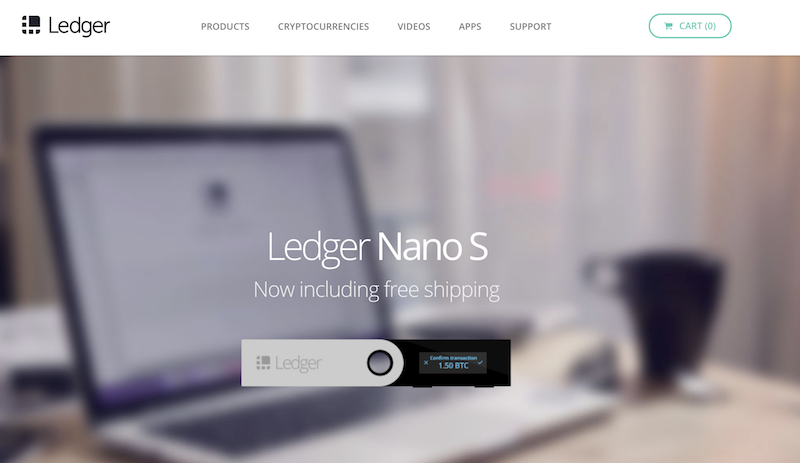
Ledger provides so-called hardware wallets
Wallet Review: Web and Online Wallets
All wallet species have so far only been described superficially, so in the next step we pay attention to a detailed presentation of all solutions in our wallet review. Initially focus on web or online wallets. However, these are not two different types, but only two common names for the same product.
Web-based wallet providers manage your private keys online on their servers. For example, as mentioned earlier, the trading platforms of Bitcoin, Ethereum and Co. usually represent online wallets at the same time. This is always the case when cryptocurrencies can also be stored in a trading account. However, there are also cryptocurrency exchanges and marketplaces that do not actively involve themselves in the payment process and provide a platform for stopping offers. An online wallet is not provided in this case.
Permanent availability is the wallet’s biggest advantage. However, experience in recent years has shown that this is also its greatest weakness. The private keys of all wallets are stored centrally, giving hackers access via targeted attacks. Investors can protect themselves from serious losses by paying attention to security while conducting wallet provider comparisons.
More about your smartphone wallet
Many of the points that apply to web-based wallets can be transferred 1:1 to your smartphone wallet. Smartphones are undoubtedly one of the devices that their owners carry with them at all times, giving them the most flexibility and availability of crypto assets. The storage of the private key is done directly on the device, so the wallet address can be sent within seconds like a QR code or NFC. Thus, digital money can conveniently be used for payment at an appropriate terminal.
A mobile wallet is not a full-fledged client with simultaneous access to the entire cryptocurrency network. For example, the size of the Bitcoin blockchain is now over 150 gigabytes, which must be downloaded for this purpose on your device. In the case of smartphones, this is almost impossible. As such, smartphone wallets are increasingly using Simpled Payment Verification (SPV), which requires only a small portion of the database to be stored on the device in order to perform secure payments. However, mobile wallet users should be very careful with their devices and back them up regularly. Otherwise, even the loss or theft of your smartphone will make your wallet inaccessible.
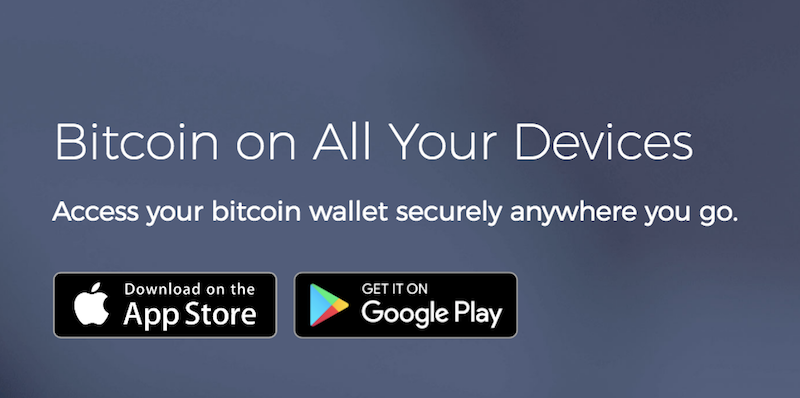
Blockchain.info offers apps for iOS and Android
Coin Management via Desktop Wallet
The client mentioned above, which downloads the complete image of the blockchain, takes us directly to our desktop wallet. What many stakeholders don’t know about testing wallet providers: For example, if you use the Bitcoin client Bitcoin Core, you automatically have a desktop wallet. This applies equally to other cryptocurrencies. You can also send and receive BTC using programs that provide access to cryptocurrency networks. It is also responsible for managing private and public keys.
However, the client is not the only desktop wallet, there are many other providers out there. They usually offer a variety of features, focus on issues such as security or anonymity, or are suitable for use on the following platforms:
- Window
- Linux
- Mac OS X
The great thing about a desktop wallet is that other computers behind a firewall cannot access it. They belong to the so-called cold wallets, are not connected to the Internet and are suitable for storing large amounts of digital currency. As a result, there is no flexibility. Anyone who is on the go and wants to have their assets in a desktop wallet is not possible.
Offline wallets: useful gadgets for security
If you want to ideally protect your crypto assets from unauthorized access, you can find another form of Cold Wallet: a hardware wallet. There are various vendors offering devices of different sizes and designs. Most devices are similar in shape and size to standard USB sticks, so you can find space in any pocket. So it’s also suitable for mobile use. However, if you want to store large amounts of digital coins and keep your device secure, we recommend using a hardware wallet. For this purpose, for example, in-house safes or safety deposit boxes. Crypto owners can add a PIN or password to their wallet to prevent loss due to theft.
However, hardware wallets are tied to a point not seen in many other wallet solutions, and a wallet comparison is absolutely necessary: cost. Buying equipment costs money, but many other wallet solutions are completely free. Most devices range from 70 to 250 euros, and hardware wallets are also available at higher prices. However, those interested in using hardware wallets are often bound by their availability. Demand for secure storage solutions from Bitcoin and Co. is huge, so not all devices are always readily available.
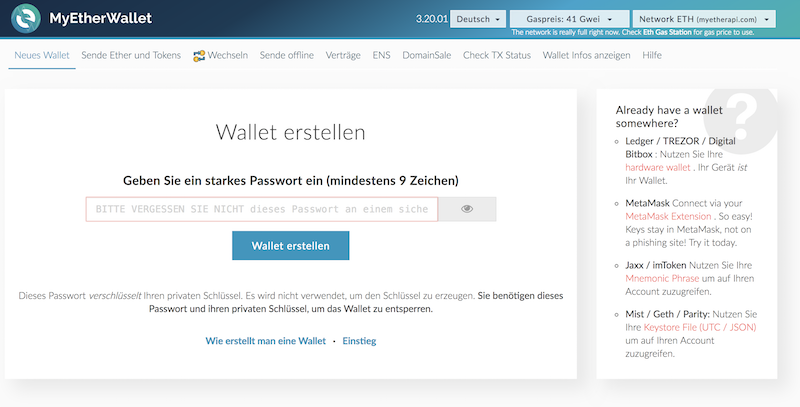
MyEtherWallet also convinced the offer of wallet comparison.
Paper wallet: storage via QR code
This is a very simple way to keep your private key, but at the same time a fairly secure way. In the early days you had to write down the entire string, but now there are programs that print both the public and private keys as QR codes on a single sheet of paper. Scanning your private key gives you access to your own wallet, so you should never get your hands on it. On the other hand, you can transact in your own wallet by passing the QR code of your public key. By laminating paper, you can protect it from most environmental influences, but it can be destroyed by fire. Without a backup you will lose access to your wallet.
A variation of the paper wallet is a coin with an engraved key. In this way, it is possible to pay in physical form using coins, even though they are digital currencies. Wallet experience with this storage format suggests that these coins are nearly indestructible, but can be lost quickly due to their small size. Also, if the owner is unable to make such a piece itself, the private key should not be in their hands. Again, there are security risks.
Why is wallet comparison important?
Unlike wallet solutions, cryptocurrency owners have different needs. People who don’t compare previous wallet providers or ask other users’ wallet experience for their solution often choose a wallet they are not 100% satisfied with. All factors must be right to achieve the best results, especially when investing in cryptocurrencies. After all, sometimes a lot of money is at stake.
At this point, you can ideally use the market leader Bitcoin. The price has risen so much in recent years that it has reached a value of less than $20,000 per BTC. Since then, the price has declined significantly again, but it is clear what dimensions investors need to move in the meantime if they want to build a small fortune in cryptocurrencies. This makes it even more important to ensure security in a location that is protected from unauthorized access. One possible model is to keep a large amount of money in a cold wallet and distribute small amounts among several hot wallets that can be accessed without bypass.
For example, the system also uses large crypto exchanges. Up to 98% of deposits are stored in cold wallets, protecting them from outside access. Only a small balance is available for hot wallets to process payment requests immediately. Crypto exchanges are regular targets of hacker attacks, so you need to protect yourself from this form of threat. Despite high security measures, only a fraction of your cryptographic assets are lost if an attack succeeds.

Other Wallet Providers – Exodus Wallet
These criteria should be taken into account in the wallet test report.
When a wallet provider is being tested by stakeholders, several factors deserve special attention. Only then can the selected product fully meet your needs. As already mentioned, investing in cryptocurrencies now involves high capital expenditures, so there should be no contingency. When comparing wallets, investors should pay attention to the following attributes:
- Cost: Hardware wallets are always associated with an initial cost. Other solutions are mostly free, but sometimes involve fees.
- Security: Cold wallets offer very high security, but many hot wallet solutions come at risk of third-party access or loss.
- Flexibility: Your crypto assets are always available when using a hot wallet. Cold wallets, on the other hand, cannot be accessed externally.
- Availability: Depending on the model, hardware wallets may become shipping bottlenecks and increase demand.
- Support: We can help with wallet-related issues. Ideally, you should apply in Korean or English.
Conclusion: wallet comparison is worthwhile for investors
There is no single way to digitally store assets in Bitcoin and other cryptocurrencies. As our wallet experience has shown, there is no absolute best, and each variant has its own set of pros and cons. Thus, a combination of several solutions has been established in the past, allowing the disadvantages of one wallet to be compensated for by the advantages of another. With dozens of providers on the market today, a detailed comparison of options can definitely benefit investors.
Click here for more information on the Robo Advisor comparison.





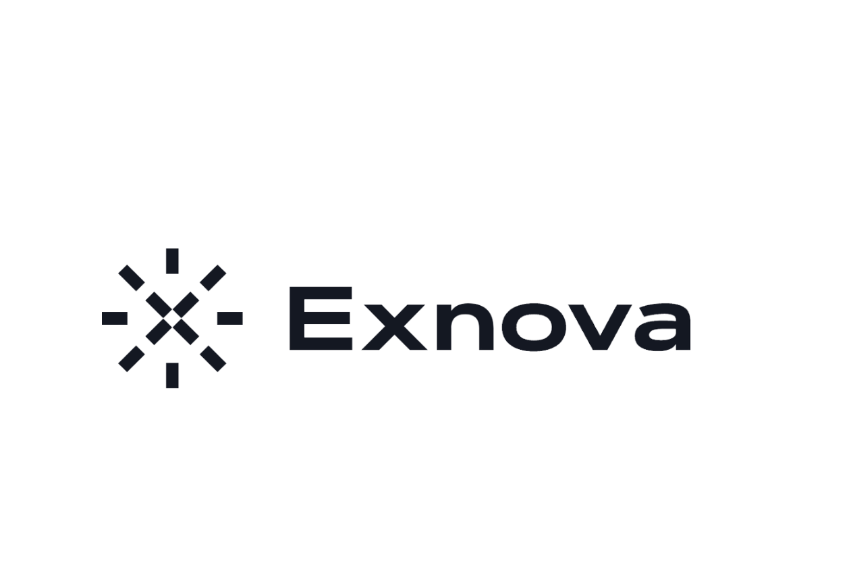


 </a >
</a >
